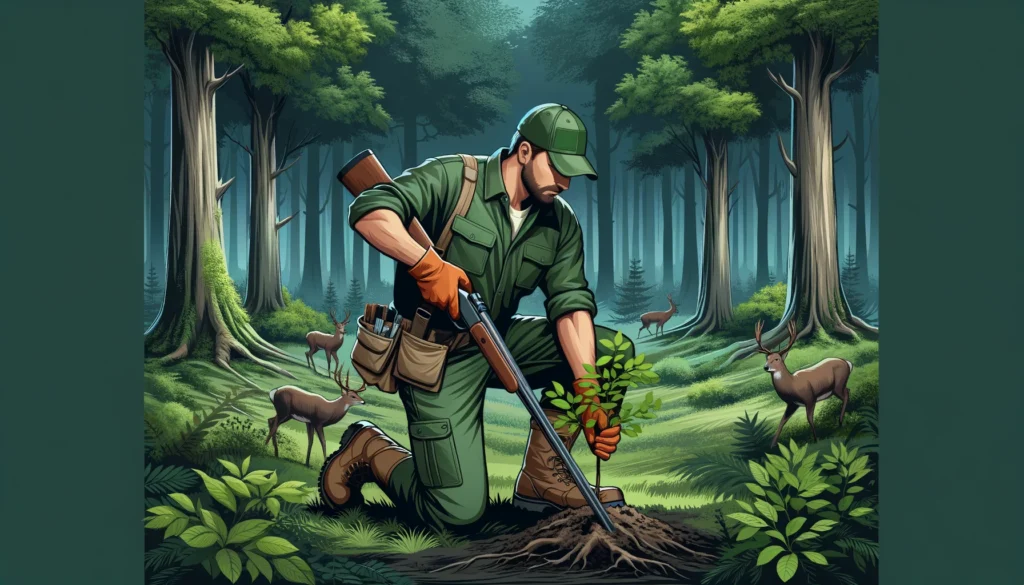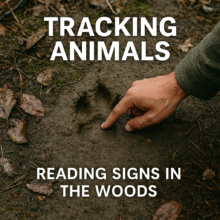Why Earth Day Should Matter to Hunters: Conservation and Stewardship

Table of Contents
- Introduction
- 1. The Role of Hunters in Conservation
- 2. Sustainable Hunting Practices
- 3. Education and Advocacy
- 4. Hunters as Environmental Monitors
- 5. The Impact of Climate Change
- 6. Promoting Wildlife Conservation Initiatives
- 7. Cultivating a Culture of Respect
- 8. Enhancing Local Economies
- 9. Fostering Collaborative Efforts
- 10. Commitment to Continuous Education
- Conclusion
- Frequently Asked Questions (FAQs)
- Why is biodiversity important to hunters?
- How can hunters participate in Earth Day?
- What are the long-term benefits of conservation-minded hunting?
- Can hunters really make a difference in conservation?
- What can young hunters learn from Earth Day?
- How can non-hunters support conservation efforts on Earth Day?
Introduction
Earth Day serves as a global reminder of our collective responsibility to preserve and enhance the natural environment. For hunters, this day holds particular significance. Hunting is intimately connected to the health of ecosystems and wildlife populations, making Earth Day an opportunity to reflect on conservation practices and the role hunters play in environmental stewardship.
1. The Role of Hunters in Conservation
1.1 Funding Conservation Efforts
- License Fees and Excise Taxes: Hunters contribute financially to conservation through hunting licenses, permits, and excise taxes on hunting gear. These funds are crucial for wildlife management and habitat conservation programs.
1.2 Habitat Restoration
- Active Participation: Many hunters participate in habitat restoration projects, such as planting native vegetation, creating water sources, and controlling invasive species, which help sustain biodiversity.
2. Sustainable Hunting Practices
2.1 Population Control
- Maintaining Balance: By adhering to regulated hunting seasons and bag limits, hunters help maintain healthy wildlife populations, preventing overpopulation and its negative impacts on habitats.
2.2 Ethical Hunting
- Promoting Ethical Practices: Ethical hunting involves taking only what you need, ensuring a quick and humane kill, and using as much of the animal as possible. These practices minimize waste and respect the natural resources.
3. Education and Advocacy
3.1 Raising Awareness
- Educational Outreach: Hunters often serve as educators and advocates for conservation, sharing knowledge about wildlife management and the importance of protecting natural habitats with the broader community.
3.2 Supporting Conservation Organizations
- Engagement and Support: Many hunters support or are actively involved in wildlife conservation organizations, which play a critical role in protecting ecosystems and educating the public about the importance of conservation.
4. Hunters as Environmental Monitors
4.1 Observing Changes
- Citizen Science: Hunters are often among the first to notice changes in wildlife populations and habitat conditions. They can provide valuable data to wildlife biologists and conservationists, aiding in early detection of environmental issues.
4.2 Advocating for Sustainable Practices
- Policy Influence: Hunters can use their firsthand knowledge of environmental changes to advocate for sustainable land and wildlife management policies that benefit both the environment and the sport.
5. The Impact of Climate Change
5.1 Addressing the Effects
- Adaptive Strategies: Hunters must adapt to changes brought by climate change, such as shifts in wildlife migration patterns and altered habitats, by supporting adaptive wildlife management strategies that ensure the sustainability of hunting practices.
5.2 Reducing Carbon Footprint
- Environmental Responsibility: Hunters can lead by example by adopting practices that reduce their carbon footprint, such as using more fuel-efficient vehicles for hunting trips or investing in renewable energy sources.
6. Promoting Wildlife Conservation Initiatives
6.1 Support for Protected Areas
- Advocacy for Expansion: Hunters can advocate for the establishment and expansion of protected areas that safeguard critical habitats and wildlife corridors, ensuring the survival of game and non-game species alike.
6.2 Participating in Wildlife Censuses
- Data Collection: Participating in wildlife censuses and other scientific surveys can help manage animal populations more effectively, providing crucial data that informs sustainable hunting and conservation policies.
7. Cultivating a Culture of Respect
7.1 Respecting Wildlife and Nature
- Cultural Shift: Promote a culture that respects wildlife and natural resources among hunters and the broader community. This respect fosters a deeper appreciation for the environment and motivates more people to engage in conservation efforts.
7.2 Role Modeling
- Leading by Example: Hunters can lead by example by demonstrating responsible behaviors and practices that prioritize ecosystem health and animal welfare. This leadership can inspire new generations of hunters and conservationists.
8. Enhancing Local Economies
8.1 Economic Benefits of Conservation
- Boosting Local Economies: By supporting habitats that attract diverse species, conservation efforts can boost local economies through eco-tourism and hunting tourism, providing financial incentives to preserve and expand natural areas.
8.2 Investment in Research and Development
- Funding Conservation Research: Hunters can contribute to or fund research that develops new methods or technologies for sustainable hunting and wildlife management, helping to advance conservation science.
9. Fostering Collaborative Efforts
9.1 Partnerships with Conservation Groups
- Building Alliances: By forming partnerships with conservation groups, government agencies, and other stakeholders, hunters can help create more effective and comprehensive conservation strategies.
9.2 Community-Based Conservation
- Engagement in Local Initiatives: Hunters can play a significant role in community-based conservation initiatives, which often require the buy-in and participation of local populations to succeed.
10. Commitment to Continuous Education
10.1 Lifelong Learning
- Ongoing Education: Commit to continuous education on the latest wildlife management and conservation practices. Staying informed helps hunters adapt to evolving challenges and enhance their conservation efforts.
10.2 Public Education Campaigns
- Spreading Knowledge: Engage in or support public education campaigns that raise awareness about the importance of biodiversity, the ecological benefits of well-managed hunter populations, and the critical role hunters play in conservation.
Conclusion
Earth Day underscores the vital connection between hunters and conservation. By embracing their role as stewards of the earth, hunters not only ensure the continuation of their sport but also contribute to the broader goal of environmental preservation. This day serves as a reminder of the importance of sustainable practices and the impact individuals can have on global conservation efforts.
Frequently Asked Questions (FAQs)
Why is biodiversity important to hunters?
- Biodiversity ensures the health and stability of ecosystems, which support robust wildlife populations necessary for hunting. Diverse habitats support a variety of game species, enhancing hunting opportunities and experiences.
How can hunters participate in Earth Day?
- Hunters can engage in local cleanup events, habitat restoration projects, or educational programs to teach others about the role of ethical hunting in conservation. Participation in Earth Day activities reinforces the commitment to sustainability and conservation.
What are the long-term benefits of conservation-minded hunting?
- Long-term benefits include sustained wildlife populations, healthier ecosystems, and secured hunting opportunities for future generations. Conservation-minded practices ensure that natural resources are managed responsibly and remain abundant.
Can hunters really make a difference in conservation?
- Absolutely. Hunters are often on the front lines of conservation, significantly impacting wildlife management and habitat preservation through their actions and financial contributions.
What can young hunters learn from Earth Day?
- Young hunters can learn the importance of environmental stewardship and the ethical responsibilities that come with hunting. Earth Day provides a platform to educate them on sustainable practices and the role of hunters in maintaining ecological balance.
How can non-hunters support conservation efforts on Earth Day?
- Non-hunters can support conservation efforts by participating in local clean-ups, learning about and advocating for wildlife conservation, and supporting policies that protect natural habitats and biodiversity.







